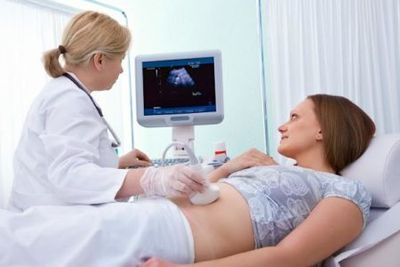A healthy pregnancy that is safe for both the mother and the baby is the primary concern when it comes to prenatal medical care. There are numerous regular appointments to attend for general check-ups on both mother and baby’s health, as well as several screening tests.
As a first-time mother who is placing her baby up for adoption, you may be feeling a bit confused and apprehensive about the screening tests. They may sound very technical and even little daunting if you’re not familiar with the terms used and why they’re part of quality prenatal medical care.
Learning about the screening tests and why they’re an important part of prenatal care may help you to feel more confident and comfortable with them. Here are three screening tests that are commonly included in pregnancy health care.
1. Ultrasounds
Ultrasounds are the most common and most frequently performed screening tests you’ll undergo during your pregnancy. They are a safe and effective way for your health care provider to check that your baby is developing properly. Ultrasounds are also used to check maternal health, particularly in regards to the location of the placenta in the womb.
Generally, you can expect to have two ultrasounds during your pregnancy. The first is performed during the first trimester and provides you with an accurate due date as well as monitoring of the health of the baby.
The second one is at around 18 weeks’ gestation and is a more extensive screening where your healthcare provider will check that your baby has no problems with their organs or muscular-skeletal system. In most regular pregnancies with no health concerns, there is generally no need for any further ultrasounds.
2. CVS and Amniocentesis
CVS (Chorionic Villus Sampling) and amniocentesis are diagnostic tests which can determine whether a baby has any genetic or chromosomal disorders. A well-known example of this type of disorder is Down’s Syndrome. They are also the only way to know for certain the sex of your baby.
CVS is performed by taking cells from the placenta at around 10 to 12 weeks’ gestation. Amniocentesis is performed at around 15 weeks’ gestation and involves removing a small amount of amniotic fluid for testing. Both tests are a little uncomfortable but not painful and you’ll be back to your usual routine after a day of rest.
CVS and amniocentesis aren’t performed as routinely as ultrasounds because there is a slightly increased risk of miscarriage after both. However, if your blood tests have any indicators of problems or if you or the baby’s father have a family history of genetic disorders, then these tests are important to undertake.
3. Glucose Tolerance Test
A glucose tolerance test is part of the screening which detects GDM (Gestational Diabetes Mellitus). GDM is a type of diabetes that begins during pregnancy and can be harmful to both mother and baby if not detected and treated.
If you’re considered to be in a high-risk category for developing GDM, then you may be tested early in your pregnancy. Otherwise, you’ll undertake the initial screening at around 24 weeks’ gestation in the form of a non-fasting oral glucose tolerance test. This test measures your body’s ability to release insulin and convert glucose into energy.
If your first screening test is positive, then you’ll undergo a second glucose tolerance test that requires you to fast for several hours before hand. This provides more accurate glucose conversion levels and may result in a GDM diagnosis.
GDM is quite common and occurs in around 6 to 9% of all pregnancies. If it’s treated and managed correctly, it doesn’t pose any serious threats to your health or your baby’s health. Initially, GDM is managed through daily blood sugar testing, modified diet, exercise, and education. However, some women may need to use insulin to maintain a healthy blood sugar level.
Your chosen adoptive family will help you to cover all or part of the costs of these screening tests, depending on whether or you have health insurance which helps with the expense. They want you and your baby to be healthy and safe as much as you do.
Some adoptive families may even like to attend some of your screening appointments, particularly the ultrasounds, which offer you both an incredible sneak-peek at your developing child. Whether this is possible will depend on how you feel about it and whether it’s logistically viable, particularly if you and the birth family are in different states.
The helpful and supportive staff at A Child’s Dream can help you to make and attend the medical appointments and screening tests that will ensure the best outcome for you and your baby. They can also guide you on how to navigate any emotional or logistical concerns you may have about the birth family attending your appointments and screening tests.



